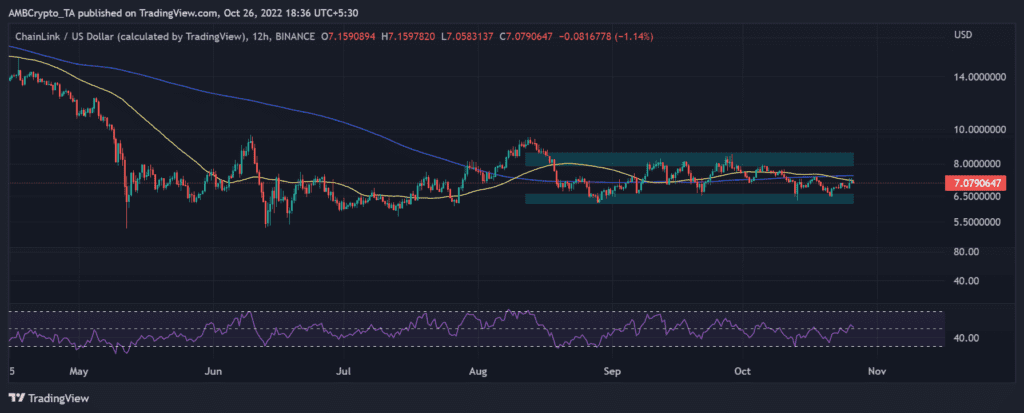Chainlink is a decentralized oracle network that uses oracles to feed real-world data to blockchain-based smart contracts.
Request Contract holders used LINK to pay Chainlink node operators for the services in order to obtain real-world data.
However, thanks to a recent statement from Chainlink, the utility and staking capacity of LINK are likely to expand to holders of LINK.
According to Chainlink, staking vO.1 will debut this year, which would enable LINK holders to find a use for their assets beyond just holding.
Here’s AMBCrypto’s Price Prediction for Chainlink(LINK) for 2022-2023
Staking v0.1
The Chainlink Network’s economic and security designs would change after the original staking v0.1 implementation.
Staking v0.1 would commence staking as a crucial economic mechanism for enabling LINK to be utilized to assist the security of the network.
This would be done by adding an additional layer of crypto-economic security to oracle services. Chainlink Staking would change as new iterations are published in the future.
The staking feature’s accessibility has been divided up by Chainlink into phases. Priority entry into the v0.1 staking pool would be given to those who qualified for early access, giving them the chance to stake directly up to 7,000 LINK until the pool ceiling is met.
Shortly after the Early Access period finishes, the v0.1 staking pool would become available to community members who were not judged qualified for early access, with a comparable 7,000 LINK restriction per address established at least for the beginning. Initially set at 25 million LINKs, Chainlink Staking v0.1 will eventually scale to 75 million LINK.
The network informed its users last week that 12 integrations of 3 Chainlink services across five separate chains had been completed.
Top chains including Ethereum, BNB Chain, and Avalanche were included in this group. With the expansion, the network’s security will require additional attention, which is where the staking feature becomes extremely important.
Security for the network, rewards for stakers
For both holders and the network, the staking feature would be advantageous in a variety of ways. An established advantage for the network would be more security through staked LINK.
Staking would now extend beyond node operators to LINK holders and would allow holders to get rewards and an increase in the value of their assets.
Launching this feature would also make LINK more appealing to other investors as they would be able to earn passive income through staking rewards. This could increase the buying pressure and send the asset into an uptrend.
Sideways LINK
An analysis of the price movement of LINK during a 12-hour period revealed that there had been no significant spikes or drops in the asset’s price.
There was a recent death cross or the short moving average (yellow line) crossing below the long moving average, and from that point on, there was a minor downward trend.
It was possible to see the yellow and blue lines acting as resistance for the asset which was indicative of a poor price move.
The asset was trading at $7 at the time of writing, with resistance levels around $7.8 and $8.6. The support level was also noted to be around $6.5 and $6.1, all in a 12-hour time frame.


